Different solution that I find more elegant
Here's another way to do it. Some people will prefer this as the code is a bit cleaner. There are no %s and a RESET color to end the coloration.
#include <stdio.h>
#define RED "\x1B[31m"
#define GRN "\x1B[32m"
#define YEL "\x1B[33m"
#define BLU "\x1B[34m"
#define MAG "\x1B[35m"
#define CYN "\x1B[36m"
#define WHT "\x1B[37m"
#define RESET "\x1B[0m"
int main() {
printf(RED "red\n" RESET);
printf(GRN "green\n" RESET);
printf(YEL "yellow\n" RESET);
printf(BLU "blue\n" RESET);
printf(MAG "magenta\n" RESET);
printf(CYN "cyan\n" RESET);
printf(WHT "white\n" RESET);
return 0;
}
This program gives the following output:

Simple example with multiple colors
This way, it's easy to do something like:
printf("This is " RED "red" RESET " and this is " BLU "blue" RESET "\n");
This line produces the following output:


